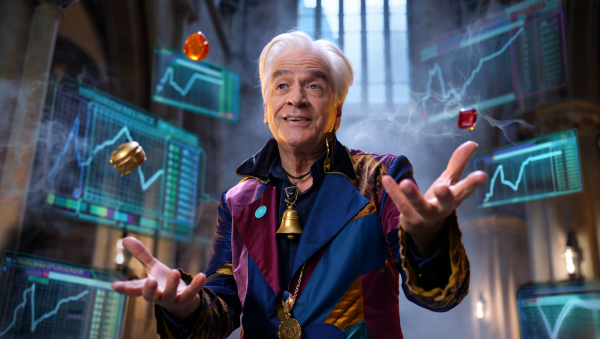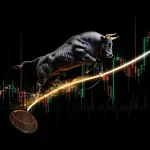
Opening Insight: Laughing in the Face of the Crowd
May 20, 2025
Stand-up comedians and contrarian investors have more in common than you might ever guess. Both step onto their respective stages—one literal, one financial—armed with the courage to defy consensus and flip expectations on their head. Here’s the twist: the comedians who truly stand out don’t chase easy laughs, just as the most successful investors don’t chase the market’s current favourites. Instead, they provoke, subvert, and challenge what the crowd thinks it knows. In doing so, they find truth—and value—hidden where others refuse to look. The best punchlines, like the best trades, are counterintuitive: they work precisely because they violate what the audience expects. This is the essence of contrarian market theories: the ability to find opportunity in the uncomfortable, and to thrive by thinking differently, especially when everyone else is playing it safe.
The Psychological Connection: Comedy, Markets, and the Courage to Disagree
1. Pattern Recognition and Subversion
Comedians are masters of spotting social patterns—and then breaking them for comedic effect. Similarly, contrarian investors excel at recognising market consensus and deliberately taking the other side. Amos Tversky and Daniel Kahneman’s behavioural research shows that humans are wired to seek patterns and confirmation, which often leads to herd behaviour. In comedy, this manifests as predictable jokes; in markets, it’s the bubble mentality. Both crafts reward those who can spot the prevailing rhythm—and then disrupt it.
2. Comfort with Discomfort
Good comedy often makes audiences squirm before making them laugh. Likewise, contrarian investing requires emotional comfort with being out of sync—sometimes for long stretches. This willingness to endure discomfort is supported by studies on cognitive dissonance, which show that most people experience psychological stress when holding unpopular views. Legendary contrarian Seth Klarman argues that true opportunity exists only when you’re willing to be misunderstood or even ridiculed, just as comedians are when they bomb on stage.
3. The Power of Independent Thinking
The best comedians don’t recycle old jokes—they cultivate a unique voice. Likewise, investors like Howard Marks or John Templeton built fortunes by questioning consensus and forming independent theses. Research into groupthink by Irving Janis reveals how social pressure can stifle dissent, leading to poor collective decisions. Both comedy and investing reward those who actively resist the gravitational pull of group opinion and trust their own analysis.
4. The Feedback Loop of Risk and Reward
In both fields, risk is immediate and public. A comedian faces silence—or boos—if a joke flops; an investor faces financial loss and public scrutiny. Yet, the biggest laughs and the largest returns come from calculated risks that others deemed too dangerous. The positive feedback loop of boldness, when well-calibrated, produces outsized rewards.
Concrete Example: Consider the dot-com bust. While the herd was obsessed with tech stocks, contrarians like Warren Buffett avoided the mania and waited for value to re-emerge. Meanwhile, comedians like George Carlin or Hannah Gadsby found critical acclaim not by parroting safe material, but by challenging societal norms—often before the crowd was ready to laugh.
Practical Applications: Harnessing Contrarian Mindset for Market Success
How do you cultivate the mindset of a contrarian, both in markets and in life?
Recognising Your Own Patterns
- Notice when you’re agreeing with the crowd by default. Are you buying a stock because everyone else is, or because your analysis supports it?
- Monitor your emotional response to discomfort. Do you avoid investments—or ideas—that make you uneasy?
- Reflect on times when following the herd led you astray. What can you learn?
Applying Stand-Up Wisdom to Investing
- Challenge the Obvious: When a market thesis is universally accepted, ask who might be thinking differently—and why.
- Embrace Discomfort: Use journaling to track your emotional state when making unpopular decisions. Over time, discomfort signals opportunity, not danger.
- Develop Your Voice: Build your own investment process, rooted in evidence and clear logic, rather than consensus.
Building Transferable Frameworks
- Strategic Patience: Like a comedian who waits for the perfect punchline, allow time for your contrarian thesis to play out.
- Feedback Analysis: After each trade or decision, review outcomes dispassionately. Was your logic sound, regardless of the result?
- Deliberate Exposure: Regularly seek out opposing viewpoints; debate your ideas as comedians test new material on sceptical crowds.
Personal Anecdote: I lost money chasing “hot” stocks early in my investing career, only to watch a friend make steady gains betting against consensus. He treated each contrarian trade like a new joke—sometimes it flopped, but the big wins more than made up for the misses. Learning to embrace discomfort and think independently changed my entire approach.
Key Takeaways
- Pattern recognition is only useful if you’re willing to subvert it.
- Discomfort is a sign you’re onto something original.
- Independent thinking beats groupthink over the long term.
- Calculated risk-taking is essential for outsized reward.
Questions for Reflection
- Where in your life do you instinctively follow the crowd?
- What’s your emotional response to holding an unpopular opinion?
- How do you test your own investment ideas for originality and rigour?
Conclusion: The Last Laugh—and the Last Word
The worlds of stand-up comedy and contrarian investing both reward those who dare to be different. True success comes from the courage to challenge the crowd, embrace discomfort, and refine your unique perspective. The “aha moment”? Realising that the best opportunities—whether laughs or profits—belong to those who refuse to play it safe. Next time you size up a market consensus, ask yourself: are you following the script, or writing your own punchline? The choice defines not just your returns, but your identity as an investor—and a thinker.
Leaving a Mark: Impactful Articles












